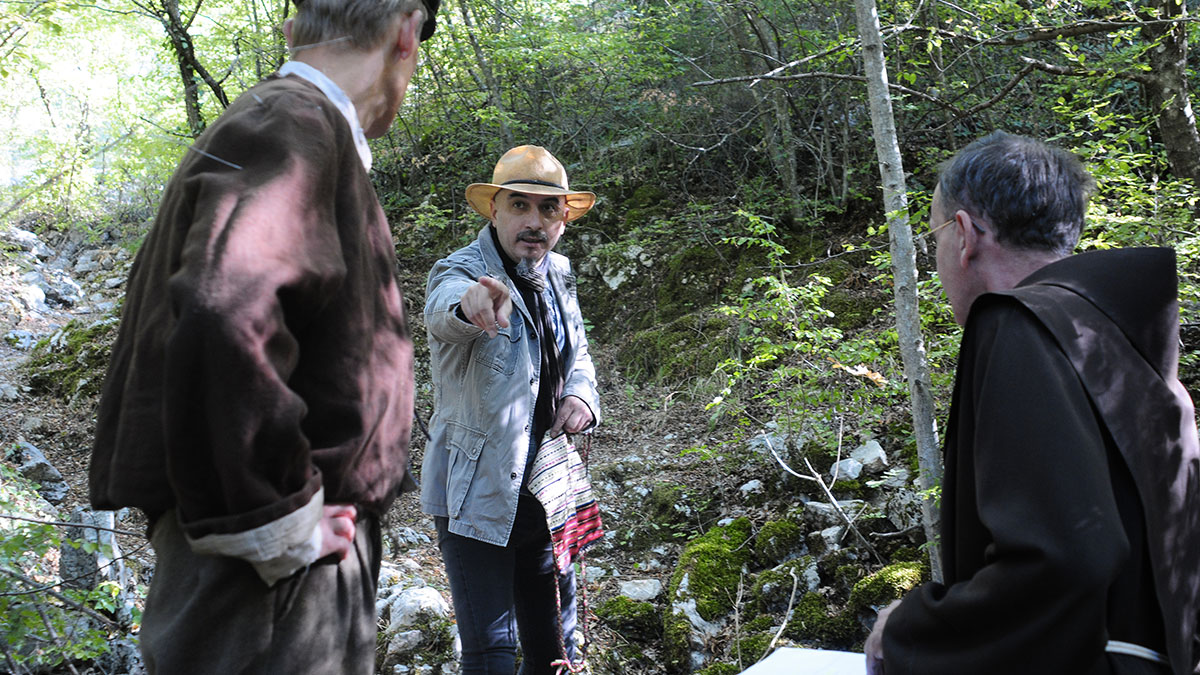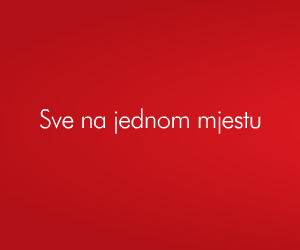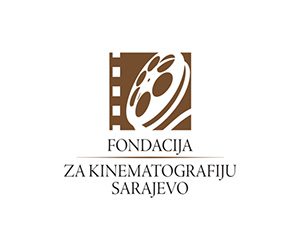
10/10/2023
Author of the films 'Stigma' and 'Silent Drifter': I don't want to flatter the audience cheaply
Before the premiere screening of the feature film ‘Stigma’, a story about Herzegovinian tobacco smugglers and a documentary about one of the greatest artists from these parts, the ‘silent drifter’ Virgilije Nevjestić, we talked to Zdenko Jurilj, who despite the fact that he is one of the most productive directors in this region, says that 'his film' is yet to come.*Feature film ‘Stigma’ is going to have its Herzegovinian premiere at the opening of the 24thMediterranean Film Festival in Široki Brijeg. This is again a local story that needed to be told. Present it to us.
This film story is not local in terms of its plot, I would rather say that it is universal. Just after the end of the World War II, five men are trying to save their families and themselves from starvation by smuggling tobacco from Herzegovina to Bosnia. On this illegal smuggling route that takes them through canyons, woods and mountains there are still remnants of defeated armies and the police arrests are happening at every step of the way. In its essence, the film raises question about the quarrels due to ideological differences, ghosts of the past, and finally the sense of revenge which is still prominent today in almost all societies, not only in our Balkan ones.
You premiered it at the Film Meetings in Niš, what were the reactions of the audience?
The fact that the film was screened at one of the oldest festivals in the region is a big thing for us. Considering that this film, according to its plot and dynamics, belongs to the category of ‘slow cinema’ genre of artistic cinema which is characterized by a minimalist, observational style with little narration and relatively long shots, the reaction of the audience in Niš was good. The audience was generationally mixed. Young people did not know that such a story even existed, and the older audience lamented the ideological hints in the film. We were positively surprised by the professional observations of some professors from the Academy of Performing Arts from Belgrade and Novi Sad who watched the film.
Are you satisfied with what was done and what was the most difficult for you in the process?
We completed the post-production of the film, sound and image processing, only a few weeks ago, so we hope that its festival life will continue at European and world festivals in the next two years. The entire process seemed frustratingly long, from adapting the script to the budget you have, which in our case was ridiculous:the hardest thing is the fact that due to the lack of money, you have to cut out some scenes that would give the film an even stronger visual note. But when a bunch of people gather, some of whom you see for the first time in your life, and when it all works like a single machine, you are glad you even take part in such a process.
We are opening and closing the festival with your film. Where does the story of the silent drifter, Virgilije Nevjestić, come from?
I first found out about Virgilije Nevjestić when I was a kid. I saw a calendar that was illustrated with his paintings, graphics, stained-glass... In a child’s mind this looked out of this world, and you couldn’t figure out what it was really about, except that it looked beautiful and amazing. Back in 2009, when Virgilije died in Paris, I had an initial conversation about filming a documentary with the late Peter Miloš, a writer and journalist who was a very good friend of Virgilije. In the meantime Petar Miloš died too, so this idea was ‘conserved’ until 2019. An insight into his diary records, given to us by the family of Ikan Nevjestić, his nephew, gave birth to a new, different idea in the creation of a documentary-featured poetic film. These diary records, graphics, paintings, poetry he wrote revealed a new character, in which everything is sublimated. Virgilije was a world-class erudite, he was declared the best graphic artist of the 20th century in France, but he also wrote poems, dealt with film criticism and even wrote the script for the film 'Crazy Day' by Nikola Babić. He was a philosopher, a kind of a revolutionary, who fully fought against monetisation in art. He used to hang out with Nobel Prize winners, like Pablo Neruda, Samuel Beckett and was friend with wide range of poets and artists. He was a stoic, who defied the misunderstandings of art criticism at the time, but also the difficult existential conditions he found himself in during his life, but he never betrayed his artistic credo.
How do you choose the subjects you want to capture? Is it a process of some joint thinking of the team gathered around Kadar production? Or you just simply listen to yourself?
Now it sounds pretentious, but topics are sought, among other things, on the model of A.G. Matoš, who first introduced the term flaneurism into Croatian literature. From the position of a leisurely observer, a curious walker or a flâneur, he was looking for inspiration for his works. Of course there are newspaper articles, essays, reviews, historical material, and suggestions from friends, work colleagues and adaptations of some literary novels. We are currently working on the adaptation of a novel by the writer Josip Mlakić, with whom I have a long-standing friendship and collaboration. As the great Andrei Tarkovsky once stated and wrote: 'You don't need much in art - you need a sensitive, flexible soul, open to the beautiful and good, capable of an immediate aesthetic experience.'
Which film are you most proud of, if we can put it that way?
There isn’t any. It may come in the future. And this is the curse in this job. I would change, add, and take something away from all the works... I would like to refer to Tarkovsky again, who brilliantly described this: ‘Film is probably the most unfortunate of all arts. Film is used as a chewing gum, as cigarettes, as things that can be bought. But if we think about film as art, such an approach is absurd’.
What do you think is crucial for someone to become a good director?
To be honest with yourself and the audience, but not to cheaply flatter them, at all cost. Continuous learning, watching other people’s films, reading books from all the fields, going to the theatre, cinema, talking to colleagues. If there hadn’t been persuasions from Professor Ante Peterlić, a Croatian filmologist and encyclopaedist, and Zoran Tadić, a great Croatian director, maybe I would have never been engaged in motion picture. I am a journalist by profession, but as I have nothing more to say in today's journalism, this is a new medium whose messages are much stronger and longer lasting.
How well do local filmmakers cope with the regional scene?
Recent successes like that of Jasmila Žbanić, Una Gunjak, actors like Gogo Bogdan... say that you can stand side by side with the world's film jet set. Of course, the road to that goal is difficult and bloody, especially in a country where art is a luxury, and where the real stars are politicians, influencers, folklorists, half-naked cheerleaders...
To what extent has Herzegovina moved in terms of film in the past few years, from the period of your beginnings to what we have the opportunity to see today?
There is some progress. Since the period when the first shots in Herzegovina were shot by Andrija Štampar's School of Health in the 1930s to the return of Katarina Kožul, the first feature work 'Ellipse' by Tomislav Topić, director and founder of MFF, a lot has been done. In an environment where the status position of an individual is ranked according to how many offices, apartments, holiday homes you have, or what kind of car you drive, this is a big progress. In an environment where there is not even a speck of sensibility towards culture, any kind of art, let alone the seventh, individuals have made space size steps. Today in Široki Brijeg there is a Department for film, script and direction at the Academy of Fine Arts, there are two festivals in Herzegovina today, we have actors, directors, cameramen, interesting authors of animated, documentary and feature films, and even sound masters, who have achieved something on the European and world stage, but these people are invisible. It is difficult for these successes to reach the public through the forest of these false mediocrities that surround us.
*Text is published in Večernji list


